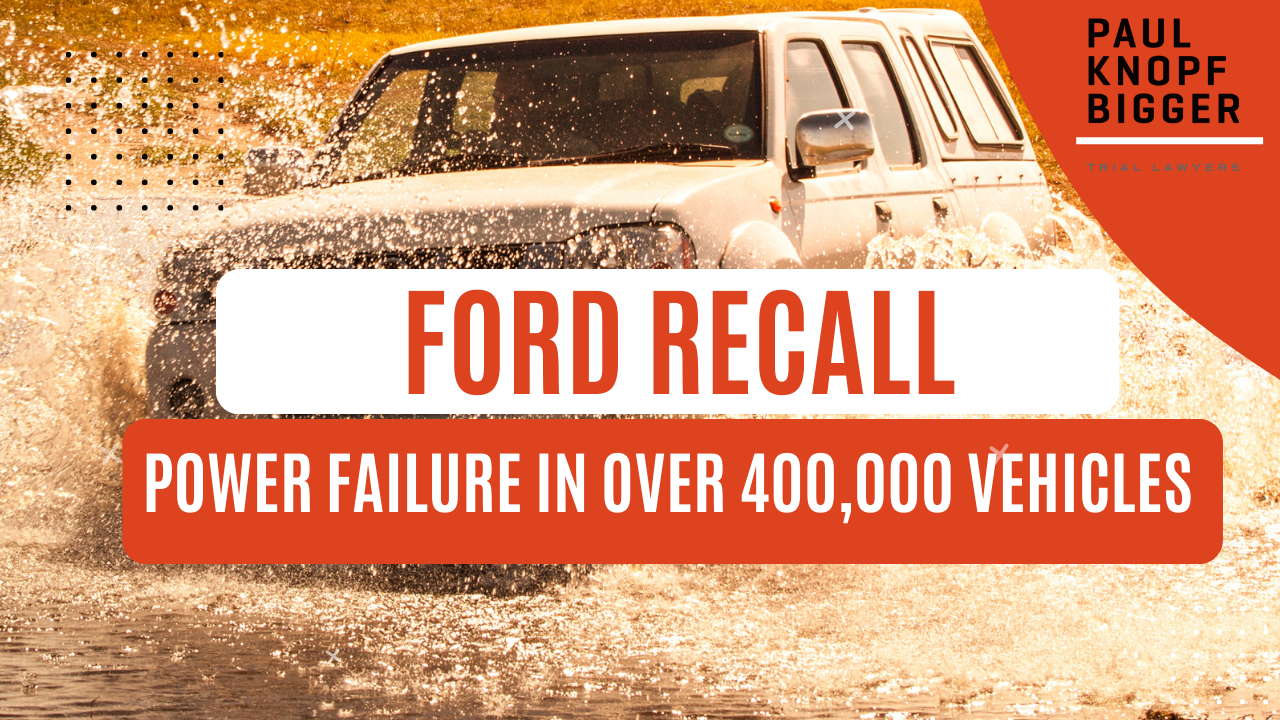
Ford Recall Due to Power Failure – Product Liability Implications
Recently, Ford Motor issued a recall affecting 456,565 Bronco Sport SUVs and Maverick pickup trucks due to potential power failures. As part of the Ford recall, the vehicles may fail to detect a low battery charge, leading to engine and electrical power loss while driving. This recall spans particular 2021-2024 Bronco Sport and 2022-2023 Maverick models. The Ford recall is attributed to failures in the vehicles’ body and power train control modules to detect a “sudden degradation” in the cars’ 12-volt battery charge.
Our reliance on consumer goods is virtually unavoidable in the whirlwind of modern life. These mass-produced items form the backbone of our daily routines, from our smartphones to prescription medications. However, this convenience comes with an expectation of safety. Product liability laws protect consumers when products fail to meet this expectation and cause significant harm.
The consequences of such failures can range from being unable to restart after an auto start/stop event to stalling while coming to a stop at a low speed. Ford will recalibrate the control modules free of charge to address the issue. Starting on May 13, owners will be notified by mail, and they can also contact Ford customer service for assistance.
This recall serves as a reminder of the importance of product safety and the recourse available to consumers under product liability laws. The attorneys at Paul Knopf Bigger are here to help you navigate the complexities of product liability.
Seven Important Principals of Product Liability Law
In Florida, as in many states, there are fundamental principles that guide product liability claims:
1. Negligence and Strict Liability:
To succeed in a product liability lawsuit, a plaintiff must typically prove that the manufacturer is liable for the injuries caused by the product. This can be done through theories of negligence or strict liability.
2. Elements of Negligence:
Negligence claims can arise from defects in design, manufacturing, labeling, breach of warranty, fraud, or misrepresentation. Manufacturers have a duty to adequately review product plans, perform maintenance procedures, and conduct thorough testing before release.
3. Strict Liability:
Under strict liability, a plaintiff must show that the product was defective before it reached the consumer, making it unreasonably dangerous. This can involve defects in design, manufacturing, or marketing, such as inadequate warnings.
4. Statute of Limitations:
There are time limits for filing product liability lawsuits in Florida. The statute of limitations is typically two years from the date of injury, with exceptions for wrongful death claims and extensions via the discovery rule.
5. Pure Comparative Negligence:
Florida follows the pure comparative negligence rule, which considers the contributions of both parties in an accident when awarding damages.
6. Chain of Distribution:
Plaintiffs can seek damages from any party involved in the product’s chain of distribution, including manufacturers, wholesalers, and retailers.
7. Damages:
Florida courts may award compensatory damages for medical expenses, lost wages, property damage, and pain and suffering. Punitive damages may also be awarded in cases of extreme negligence.
When a Ford Recall Results in a Product Liability Claim
In the event of injuries caused by defective products, seeking the guidance of a personal injury lawyer is crucial. Attorneys can help navigate the complexities of product liability laws and pursue compensation for damages suffered. We have had success in trial against Ford, with a verdict of $104.6 million dollars against the automotive giant.
At Paul Knopf Bigger, we specialize in personal injury claims, including those from defective products. If you or someone you know has been injured due to a defective product, don’t hesitate to contact us. We’re dedicated to helping clients seek the compensation they deserve.
 Skip Navigation
Skip Navigation